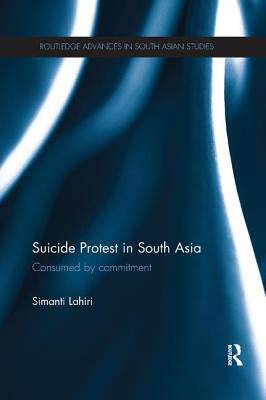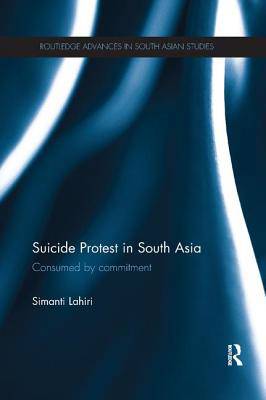
- Afhalen na 1 uur in een winkel met voorraad
- Gratis thuislevering in België vanaf € 30
- Ruim aanbod met 7 miljoen producten
- Afhalen na 1 uur in een winkel met voorraad
- Gratis thuislevering in België vanaf € 30
- Ruim aanbod met 7 miljoen producten
Omschrijving
The radical act of suicide protest is undertaken by social movement participants in order to demand a particular previously articulated political outcome. This book examines the history and impact of suicide protest, which has been increasingly used as a protest tactic since World War II, adding to a growing area of research on the ability of certain actions to impact policy in favour of movement goals.
The book offers a combination of historical and contemporary cases analysis from South Asia, where different iterations of this tactic have been used extensively throughout the latter half of the twentieth century, including the use of fasting to the death, self-immolation, and deliberate drowning. Focussing on the success or failure or a particular action relevant to the movement's broader mobilization strategy, the author examines the internal impact this has on the movement and the mechanisms by which suicide as a form of protest evolves.
Providing a unique contribution to the field of comparative politics, political violence and social movement studies this book will be of interest to scholars working on political science, sociology and South Asian studies.
Specificaties
Betrokkenen
- Auteur(s):
- Uitgeverij:
Inhoud
- Aantal bladzijden:
- 168
- Taal:
- Engels
- Reeks:
Eigenschappen
- Productcode (EAN):
- 9780815373599
- Verschijningsdatum:
- 26/10/2017
- Uitvoering:
- Paperback
- Formaat:
- Trade paperback (VS)
- Afmetingen:
- 156 mm x 233 mm
- Gewicht:
- 340 g

Alleen bij Standaard Boekhandel
Beoordelingen
We publiceren alleen reviews die voldoen aan de voorwaarden voor reviews. Bekijk onze voorwaarden voor reviews.











